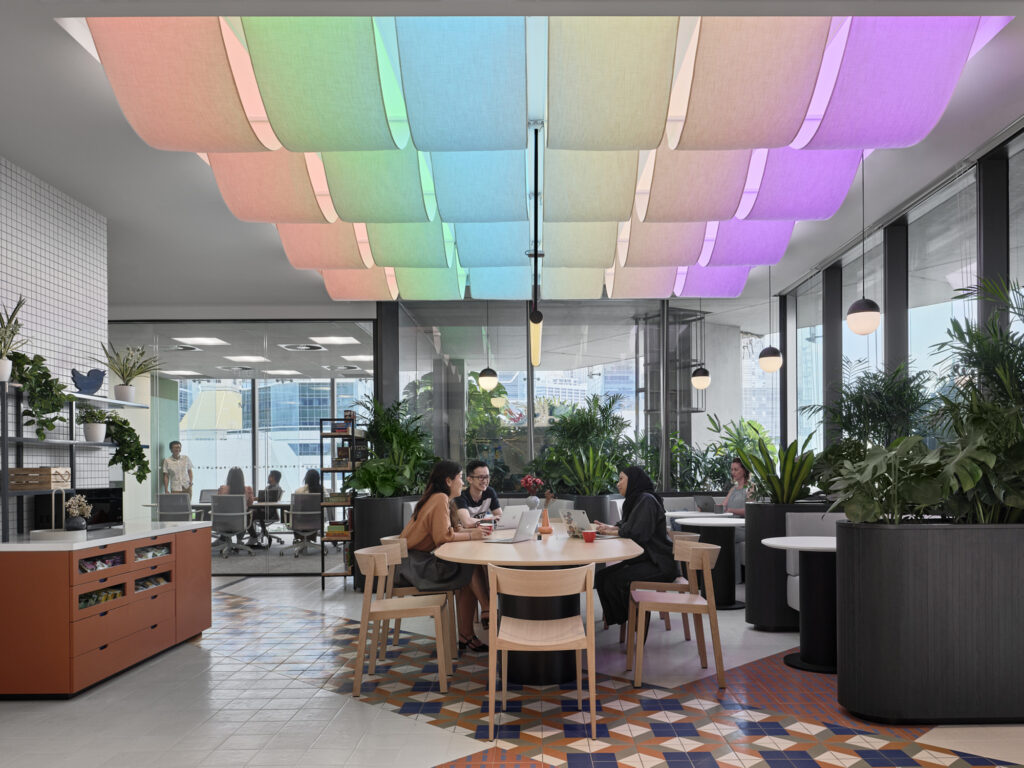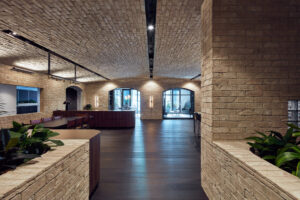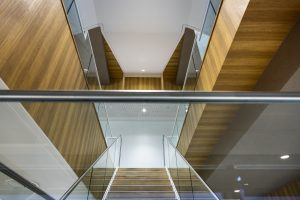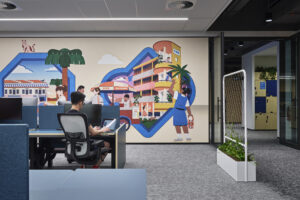Building Construction in Singapore: Project Management for Commercial Development [2025].

Building Construction in Singapore: A Regulated and Competitive Market
Singapore’s construction sector represents one of Asia’s most dynamic and sophisticated markets, contributing approximately 13% to the nation’s GDP while employing over 300,000 workers across diverse specializations. Every building construction singapore project—whether a new Grade A office tower in the Central Business District, a mixed-use development in Marina Bay, or a retail redevelopment in Orchard Road—requires meticulous planning, comprehensive regulatory compliance, and expert project coordination.
The city-state’s strategic position as Southeast Asia’s business hub creates constant demand for premium commercial developments that meet international standards while complying with Singapore’s stringent regulatory framework. With land scarcity driving property values to among the world’s highest levels, the stakes for successful project delivery have never been greater.
Modern construction project singapore initiatives must navigate an increasingly complex landscape of environmental sustainability requirements, advanced technology integration, and evolving workplace standards. The government’s commitment to transforming Singapore into a global smart city adds additional layers of complexity that demand specialized expertise and sophisticated project management approaches.
The Critical Role of Project Management in Commercial Construction
Commercial development success in Singapore depends fundamentally on expert construction manager leadership that coordinates multiple stakeholders while ensuring regulatory compliance, schedule adherence, and cost control. The complexity of modern projects requires specialized knowledge that extends far beyond traditional construction oversight.
Comprehensive Stakeholder Coordination
A typical commercial construction project involves an intricate network of stakeholders including property developers, international architects, specialized engineers, local contractors, government regulatory agencies, utility providers, and future tenants. Each stakeholder operates according to different timelines, priorities, and success metrics, creating coordination challenges that can derail projects without expert management.
Key coordination responsibilities include:
- Developer alignment with market positioning and financial objectives
- Architectural design integration with local building codes and cultural preferences
- Engineering solutions optimized for Singapore’s tropical climate and seismic conditions
- Contractor management ensuring quality standards and schedule adherence
- Government agency liaison for approvals, inspections, and compliance verification
- Utility coordination for power, telecommunications, and infrastructure connections
- Tenant requirement integration for future occupancy and operational success
Advanced Project Control Systems
Modern Singapore construction management practices employ sophisticated control systems that provide real-time visibility into project performance, risk identification, and predictive analytics for decision support.
Essential control elements include:
- Integrated project management platforms connecting all stakeholders
- Real-time cost tracking and budget variance analysis
- Schedule optimization using critical path methodology and resource leveling
- Quality assurance protocols with digital documentation and traceability
- Risk assessment and mitigation planning with scenario modeling
- Communication systems ensuring information flow and decision transparency
Navigating Singapore’s Comprehensive Regulatory Landscape
Singapore’s regulatory environment represents one of the world’s most thorough and demanding systems for commercial construction, requiring specialized expertise and established relationships with approval authorities.
Building and Construction Authority (BCA) Requirements
The BCA oversees all aspects singapore building construction through comprehensive codes and standards that address structural safety, energy efficiency, accessibility, and environmental impact. Understanding and navigating BCA requirements efficiently can determine project success or failure.
Critical BCA processes include:
- Qualified Person (QP) appointment for professional oversight and regulatory liaison
- Building plan submission with detailed architectural, structural, and MEP drawings
- Structural design approval ensuring compliance with Singapore’s seismic and wind load requirements
- Construction permit issuance following plan approval and fee payment
- Progressive inspection scheduling at critical construction milestones
- Temporary Occupation Permit (TOP) for occupancy readiness verification
- Certificate of Statutory Completion (CSC) for final project approval
Advanced BCA initiatives such as the Construction Industry Transformation Map (ITM) and Design for Manufacturing and Assembly (DfMA) requirements add complexity while providing opportunities for efficiency improvements and cost optimization.
Urban Redevelopment Authority (URA) Compliance
URA governs land use planning and development control through detailed master planning and development guidelines that directly impact commercial project feasibility and design parameters.
Essential URA considerations:
- Zoning compliance ensuring commercial use authorization and density limitations
- Plot ratio calculations maximizing allowable floor area within regulatory constraints
- Building height restrictions considering surrounding development and urban planning objectives
- Setback requirements for building placement and public space preservation
- Car parking provision based on development scale and expected usage patterns
- Conservation area compliance for projects in heritage districts
- Environmental impact assessment for larger developments affecting urban infrastructure
Workplace Safety and Health (WSH) Protocols
Singapore maintains among the world’s strictest construction safety requirements through comprehensive WSH regulations that protect workers while ensuring project quality and timeline adherence.
Mandatory safety elements:
- WSH management system implementation with documented procedures and training
- Risk assessment and control measures for all construction activities
- Safety coordinator appointment for projects exceeding specified thresholds
- Worker safety training and certification requirements
- Personal protective equipment standards and enforcement protocols
- Incident reporting and investigation procedures with regulatory notification
- Safety audit and inspection scheduling with third-party verification
Green Mark Certification and Sustainability Requirements
Environmental sustainability has evolved from optional consideration to mandatory requirement for most commercial developments, driven by government policy and market demand for environmentally responsible buildings.
Green Mark compliance levels:
- Green Mark Certified (50+ points): Basic environmental standards
- Green Mark Gold (75+ points): Enhanced sustainability features
- Green Mark GoldPLUS (85+ points): Advanced environmental performance
- Green Mark Platinum (90+ points): Industry-leading sustainability
Key sustainability criteria:
- Energy efficiency through advanced HVAC, lighting, and building envelope design
- Water conservation systems including rainwater harvesting and greywater recycling
- Sustainable material selection with recycled content and local sourcing preferences
- Waste management systems for construction and operational phases
- Indoor environmental quality optimization through air quality and natural lighting
- Innovation credits for advanced sustainability technologies and practices
Market-Specific Challenges in Singapore Commercial Construction
Land Scarcity and Development Intensity
Singapore’s limited land area of 719 square kilometers creates unique challenges for commercial development that require specialized expertise and innovative solutions.
Optimization strategies include:
- Underground space utilization for parking, utilities, and support functions
- Vertical integration maximizing floor area within height restrictions
- Mixed-use development combining commercial, residential, and retail functions
- Redevelopment and transformation of existing buildings to meet current market demands
- Transit-oriented development leveraging proximity to MRT stations and transport hubs
Labor and Talent Management
Singapore’s construction industry depends heavily on foreign workers across skilled and semi-skilled categories, creating complex workforce management challenges that impact project scheduling and cost control.
Workforce considerations:
- Foreign worker dependency ratio regulations limiting non-local employment
- Skills development and training requirements for local workforce development
- Accommodation and welfare standards for foreign worker housing
- Work permit and levy administration affecting project costs
- Productivity improvement initiatives reducing labor dependency through technology
Climate and Environmental Adaptation
Singapore’s tropical climate with high humidity, intense rainfall, and temperature extremes requires specialized construction approaches and material selection.
Climate-responsive design elements:
- Foundation systems adapted to local soil conditions and water table levels
- Structural design for wind loads and seismic considerations
- Building envelope optimization for heat gain control and moisture management
- HVAC systems designed for continuous operation in high-humidity environments
- Material selection prioritizing durability and performance in tropical conditions
Technology Integration and Smart Building Requirements
Modern commercial developments must incorporate advanced technology infrastructure that supports smart building operations and future adaptability.
Technology infrastructure requirements:
- High-capacity data networks with fiber optic connectivity and redundancy
- Building management systems for automated environmental and security control
- IoT sensor integration for occupancy monitoring and predictive maintenance
- Cybersecurity infrastructure protecting building systems and tenant data
- Future-ready cabling and infrastructure supporting emerging technologies
Advanced Construction Methodologies for Singapore Market
Prefabrication and Modular Construction
Singapore actively promotes Design for Manufacturing and Assembly (DfMA) approaches that improve quality, reduce construction time, and minimize on-site labor requirements.
DfMA implementation benefits:
- Reduced construction duration through parallel manufacturing and assembly processes
- Improved quality control through factory-based production environments
- Labor efficiency reducing on-site workforce requirements
- Waste reduction through optimized manufacturing processes
- Cost predictability through standardized production and assembly methods
Digital Construction Technologies
Advanced digital technologies are transforming construction project singapore delivery through improved planning, coordination, and quality control.
Key digital technologies:
- Building Information Modeling (BIM) for 3D design coordination and clash detection
- Virtual and Augmented Reality for design visualization and construction planning
- Drone surveying and monitoring for site analysis and progress tracking
- Digital project management platforms connecting all stakeholders in real-time
- Mobile technology for on-site data collection and quality documentation
Cost Management and Budget Optimization Strategies
Comprehensive Cost Control Systems
Effective cost management in Singapore’s high-expense environment requires sophisticated systems that track expenses, predict variances, and optimize resource allocation throughout project lifecycle.
Cost control elements:
- Detailed cost estimation using local market data and historical project performance
- Value engineering optimization balancing cost, quality, and performance objectives
- Change order management controlling scope modifications and their financial impact
- Cash flow management optimizing payment schedules and working capital requirements
- Risk contingency planning establishing appropriate reserves for unforeseen circumstances
Supply Chain and Vendor Management
Singapore’s import-dependent construction material supply chain requires expert management to ensure cost control, quality standards, and delivery scheduling.
Supply chain optimization:
- Local vs. imported material strategy balancing cost, quality, and delivery reliability
- Vendor qualification and selection ensuring capability, capacity, and reliability
- Quality assurance protocols for material inspection and acceptance
- Logistics coordination managing storage, handling, and just-in-time delivery
- Risk mitigation addressing supply disruption and price volatility
Quality Assurance and Performance Standards
Comprehensive Quality Management Systems
Commercial construction projects require sophisticated quality management approaches that ensure compliance with specifications, regulatory requirements, and client expectations.
Quality assurance framework:
- Quality plan development defining standards, procedures, and acceptance criteria
- Material testing and certification ensuring compliance with Singapore standards
- Construction phase inspection at critical milestones and completion points
- Performance testing and commissioning verifying system operation and efficiency
- Defect management and warranty protocols protecting client interests
Technology-Enhanced Quality Control
Advanced technologies provide enhanced capabilities for quality monitoring, documentation, and verification throughout construction phases.
Technology applications:
- Digital documentation systems creating comprehensive project records
- Photographic and video evidence documenting work progress and quality
- Testing equipment and sensors providing objective performance measurement
- Quality dashboard reporting offering real-time visibility into quality metrics
- Predictive quality analytics identifying potential issues before they impact project delivery
Risk Management and Insurance Strategies
Comprehensive Risk Assessment
Singapore commercial construction projects face diverse risks requiring sophisticated identification, assessment, and mitigation strategies.
Primary risk categories:
- Regulatory and compliance risks from changing requirements or approval delays
- Weather and environmental risks including monsoon seasons and extreme temperature
- Labor and resource risks from workforce shortages or material supply disruption
- Financial risks including cost escalation and payment delays
- Technical risks from design complexity or unforeseen site conditions
Insurance and Liability Management
Appropriate insurance coverage and liability allocation protect project stakeholders while ensuring adequate protection for unforeseen circumstances.
Essential insurance coverage:
- Construction All Risk (CAR) insurance protecting against physical damage and loss
- Professional indemnity coverage for design and engineering services
- Public liability insurance protecting against third-party claims
- Workers’ compensation coverage for on-site injuries and occupational health
- Delay and business interruption insurance protecting against schedule disruption
Future Trends and Market Evolution
Sustainability and Carbon Neutrality
Singapore’s commitment to carbon neutrality by 2050 will drive increasingly sophisticated sustainability requirements for commercial construction projects.
Emerging sustainability trends:
- Embodied carbon reduction through low-carbon materials and construction methods
- Renewable energy integration including solar panels and energy storage systems
- Circular economy principles emphasizing material reuse and waste reduction
- Biophilic design incorporating natural elements for occupant wellbeing
- Net zero energy buildings achieving energy independence through design optimization
Digital Transformation and Smart Cities
Singapore’s Smart Nation initiative will continue driving technology integration requirements for commercial developments.
Technology evolution:
- Artificial intelligence for predictive building management and optimization
- Internet of Things (IoT) sensors providing comprehensive building performance data
- 5G connectivity enabling advanced wireless applications and services
- Blockchain technology for secure transactions and supply chain management
- Robotic systems for construction automation and maintenance operations
Strategic Implementation Framework for Commercial Developers
Project Planning and Feasibility Analysis
Successful commercial construction begins with comprehensive planning that addresses market conditions, regulatory requirements, and financial objectives.
Planning framework elements:
- Market analysis and positioning ensuring alignment with demand and competition
- Financial modeling and feasibility assessment including development costs and returns
- Regulatory compliance planning addressing all approval requirements and timelines
- Risk assessment and mitigation identifying potential challenges and solutions
- Stakeholder engagement ensuring alignment among all project participants
Professional Team Assembly
Project success depends on assembling qualified professionals with relevant Singapore experience and demonstrated expertise.
Key professional roles:
- Project manager with Singapore commercial construction experience
- Qualified Person (QP) for regulatory compliance and approvals
- Design team including architects and engineers with local expertise
- Main contractor with appropriate licensing and track record
- Specialty consultants for specific technical requirements and services
Conclusion
Building construction in Singapore represents both exceptional opportunity and significant complexity requiring specialized expertise, regulatory mastery, and sophisticated project management capabilities. The city-state’s position as Southeast Asia’s premier business destination creates continuous demand for world-class commercial developments that meet the highest standards of quality, sustainability, and operational performance.
Success in Singapore’s construction market requires understanding that goes far beyond traditional project management to encompass regulatory navigation, stakeholder coordination, technology integration, and market positioning. The stringent requirements of agencies including BCA, URA, and WSH, combined with sustainability mandates and smart city initiatives, create a operating environment where expertise and experience provide decisive competitive advantages.
The most successful commercial construction projects integrate comprehensive regulatory compliance, advanced construction methodologies, sophisticated risk management, and future-ready technology infrastructure into cohesive delivery strategies that achieve exceptional outcomes while controlling costs and schedules.
For developers and investors planning construction projects in Singapore, partnering with experienced construction managers who possess deep local knowledge, established regulatory relationships, and proven track records provides the foundation for success in one of the world’s most demanding but rewarding construction markets.
The future of Singapore’s commercial construction industry will be defined by increasing sustainability requirements, advanced technology integration, and evolving workplace standards that demand even greater expertise and specialization from project management professionals.
Ready to navigate Singapore’s complex construction landscape and deliver exceptional commercial development outcomes? Contact our specialized construction project management team to leverage decades of Singapore market experience and ensure your project achieves regulatory compliance, schedule objectives, and financial success in this competitive market.



